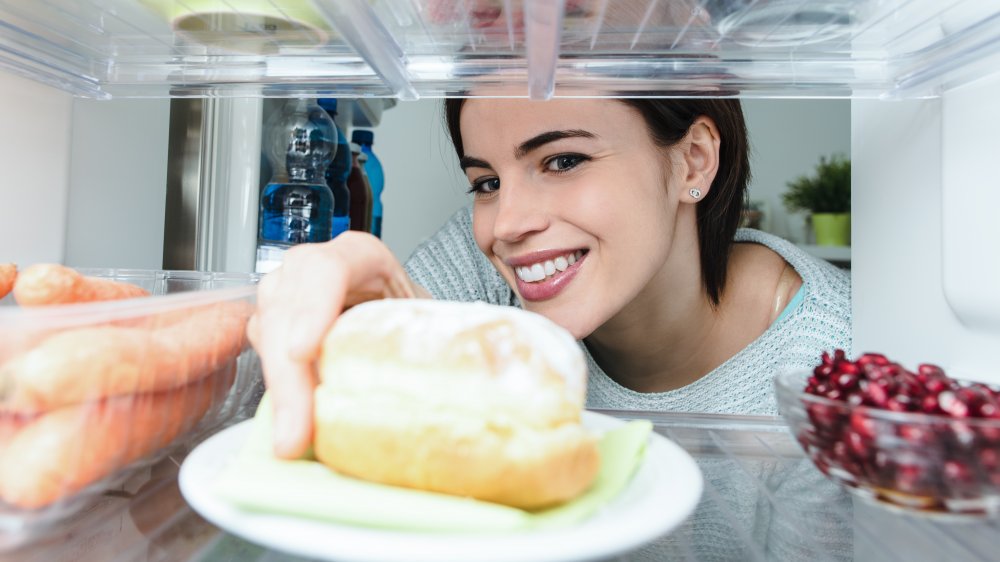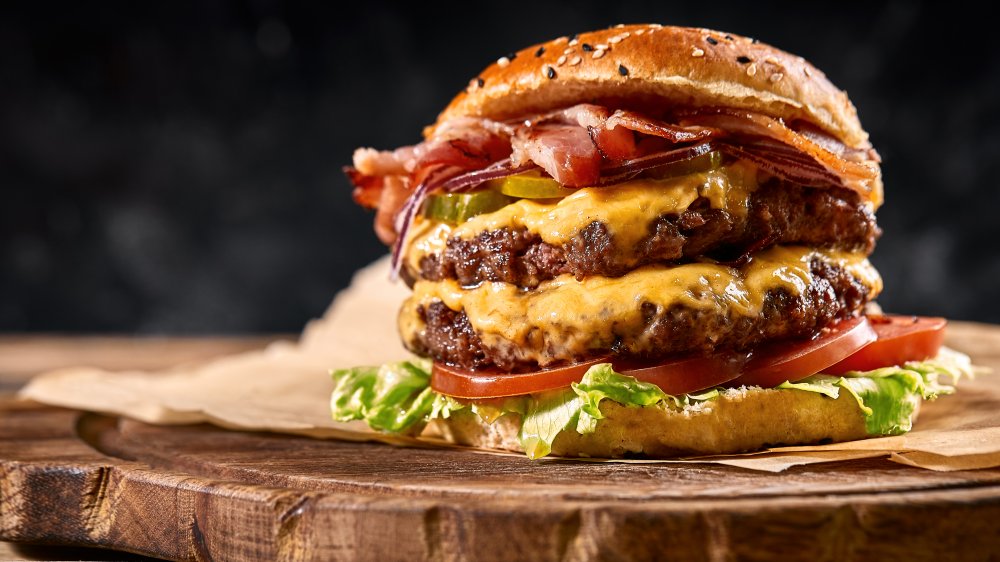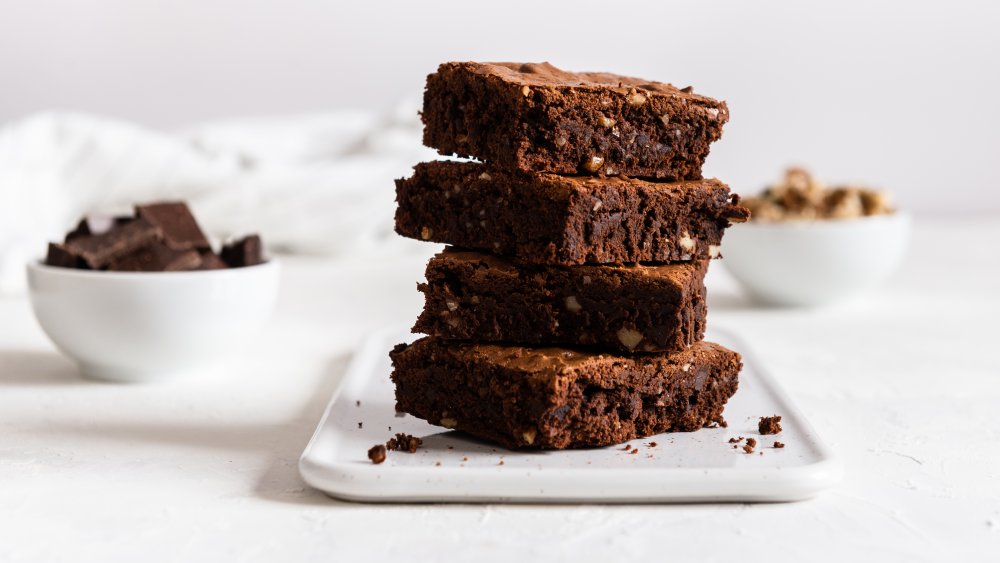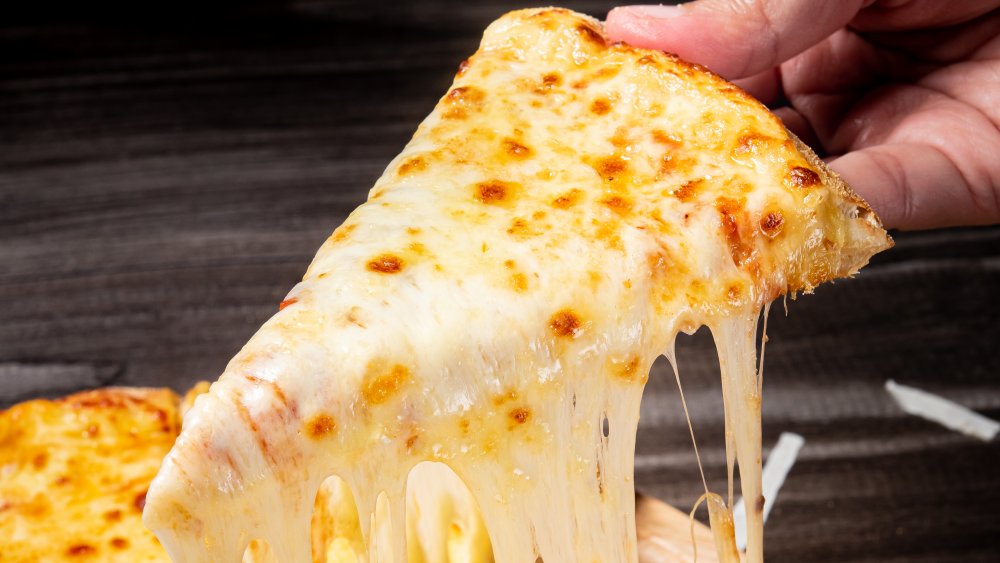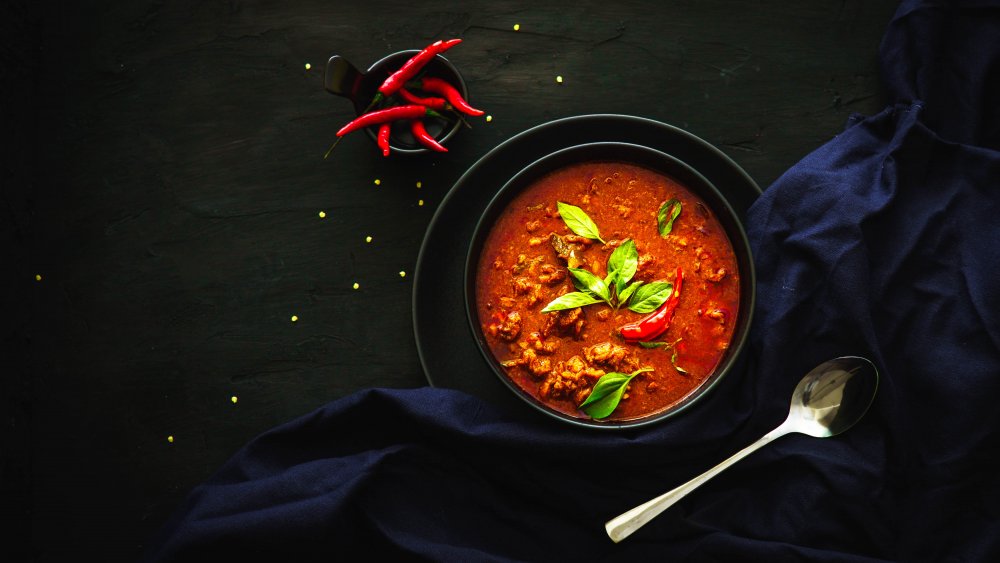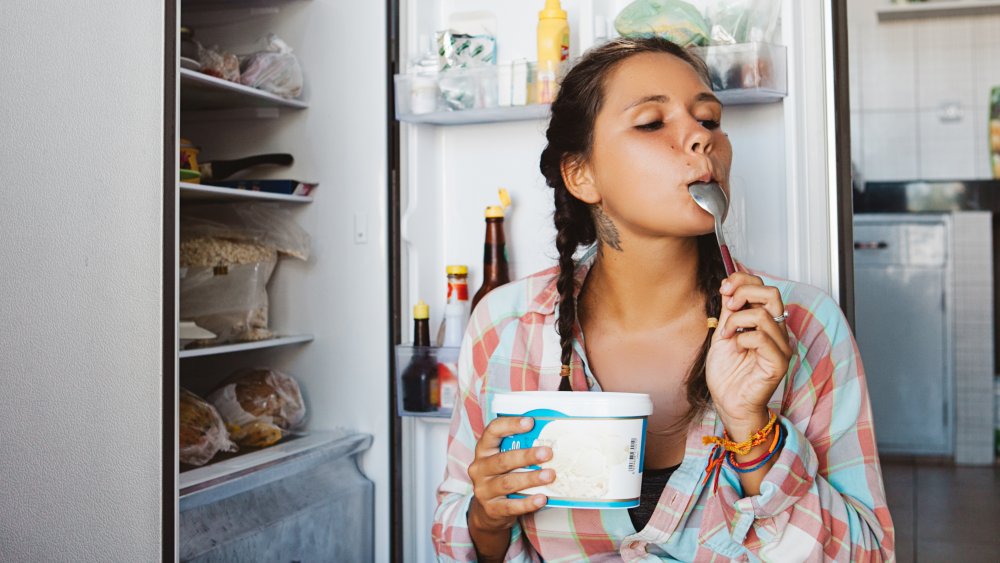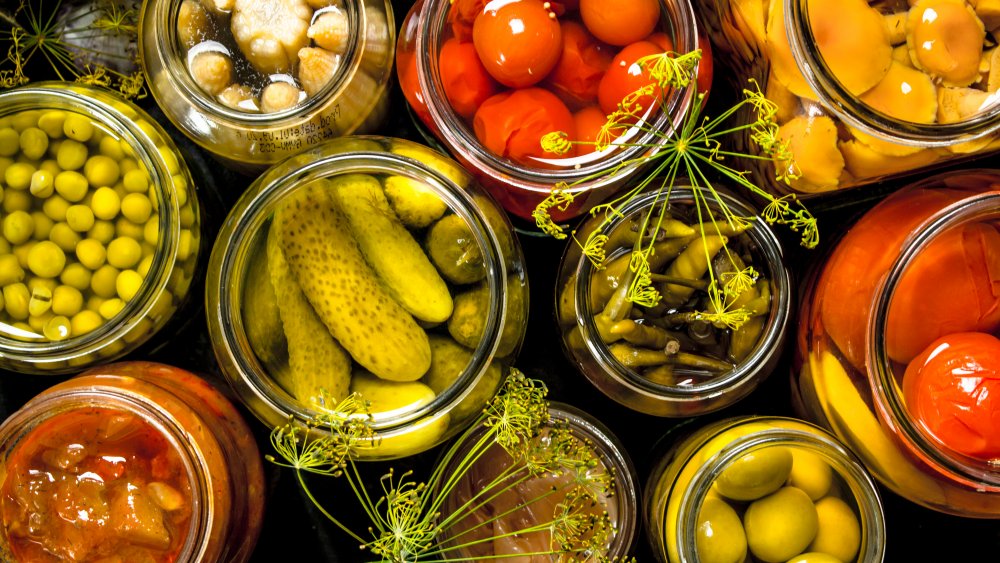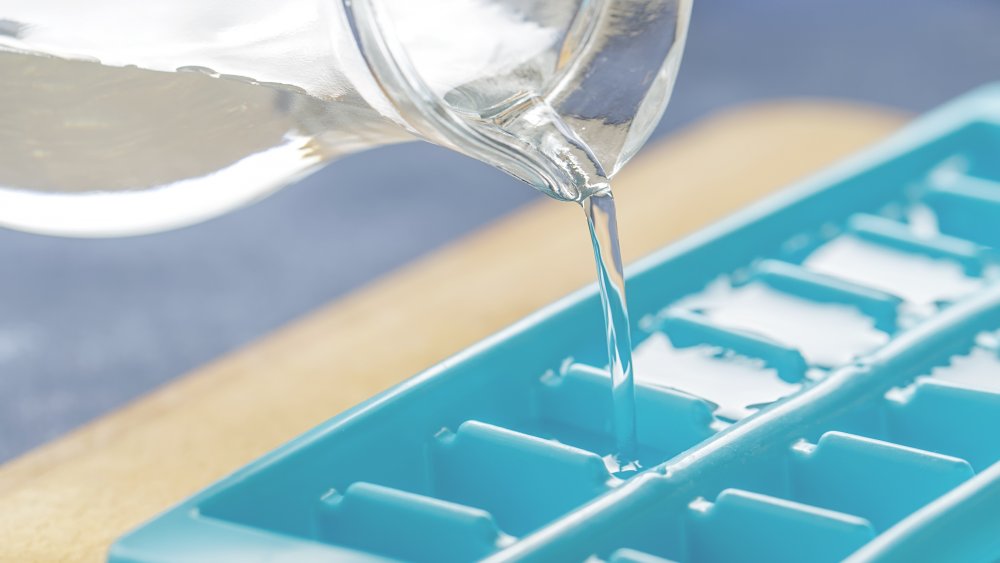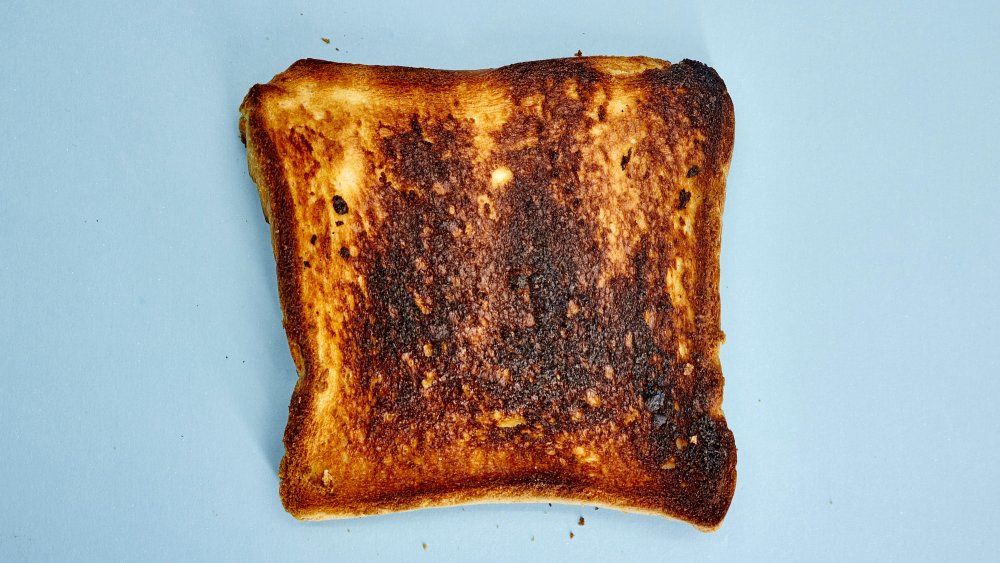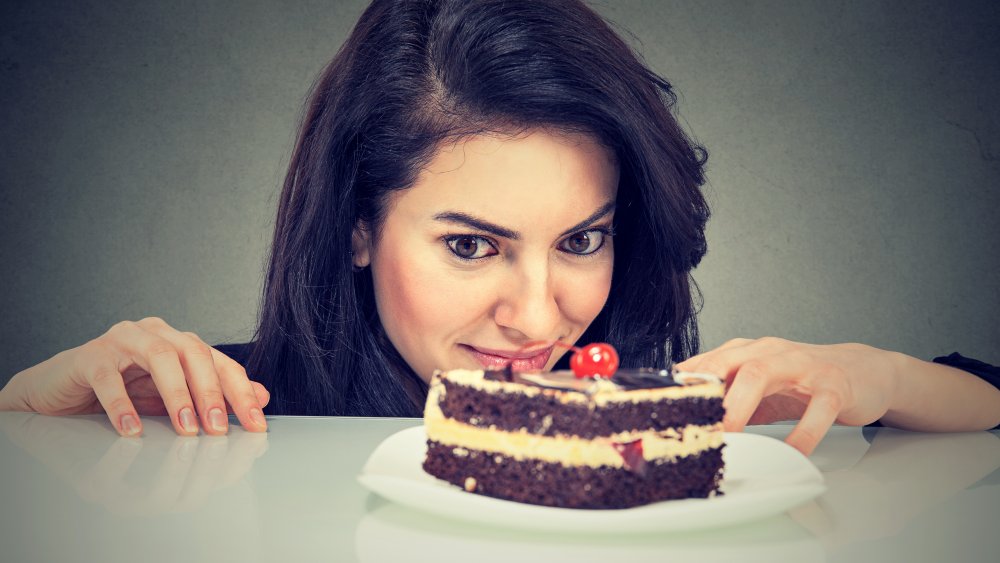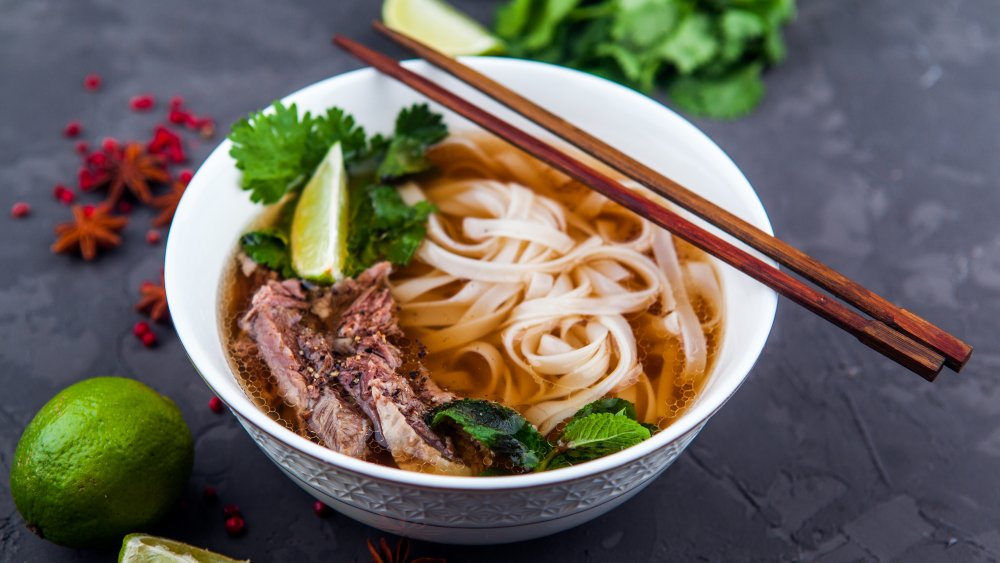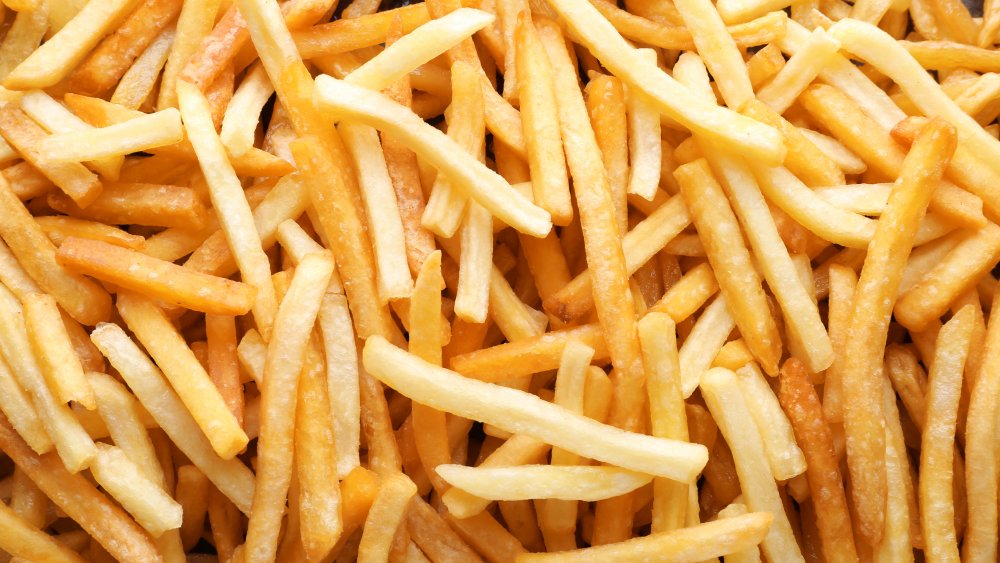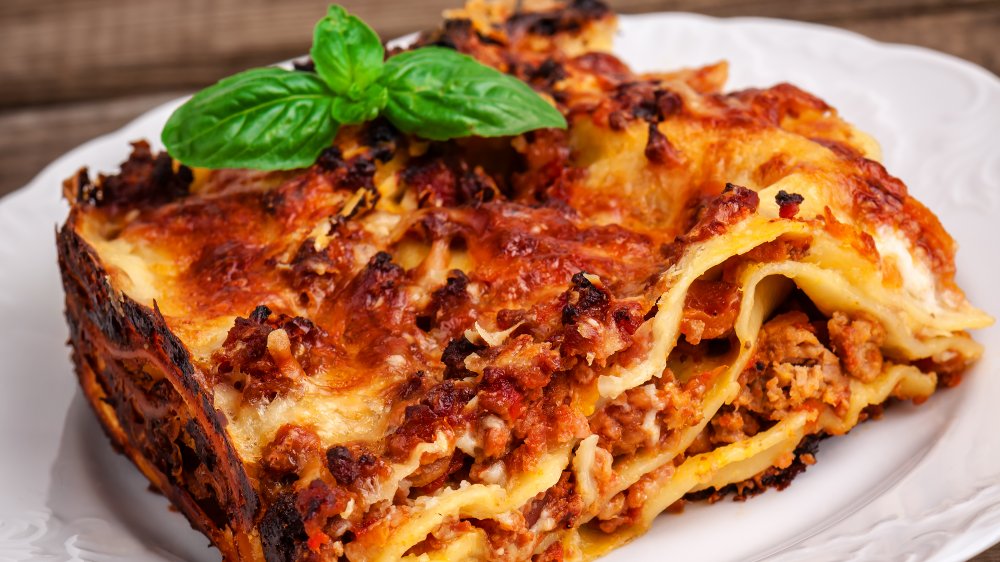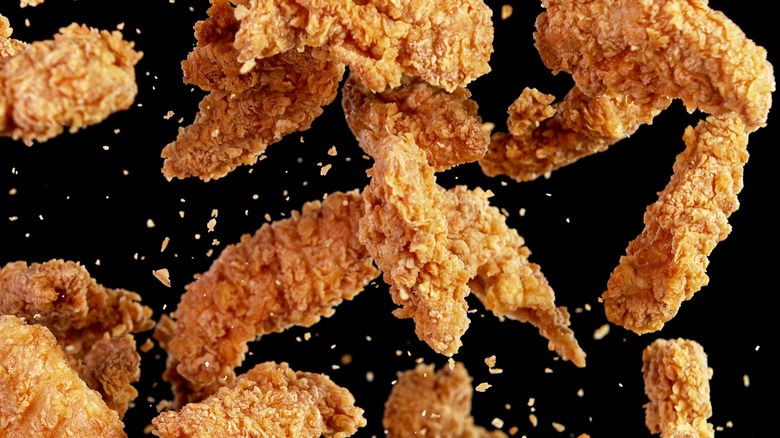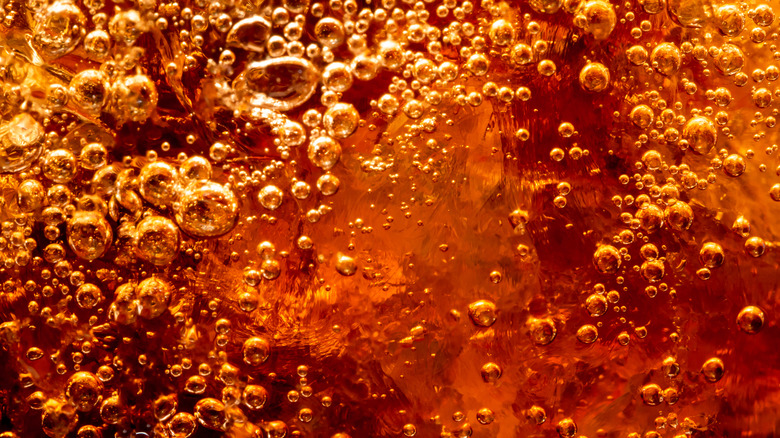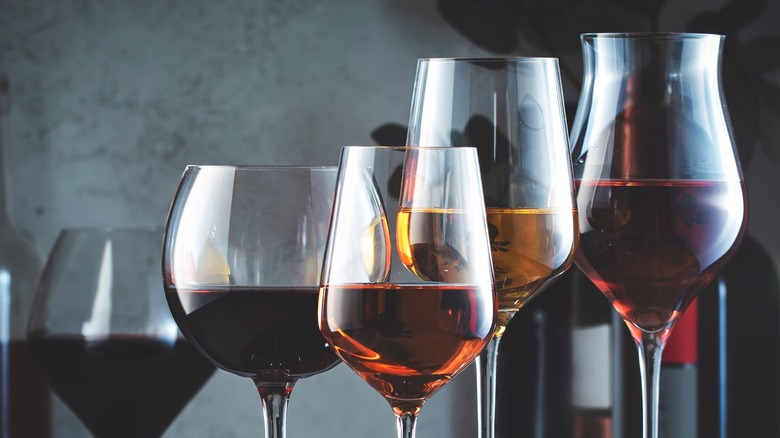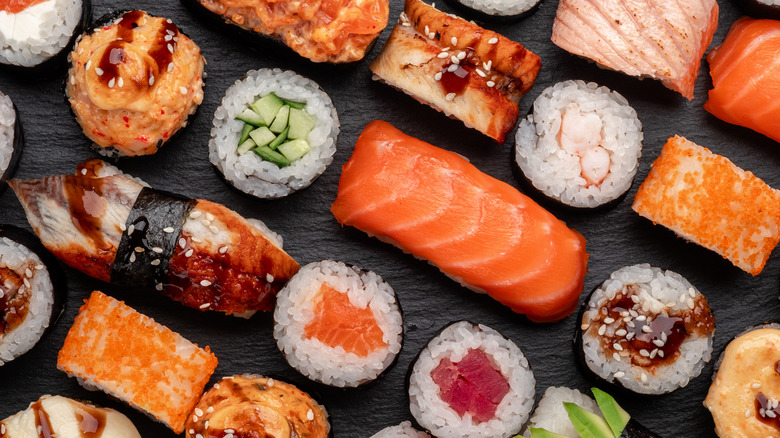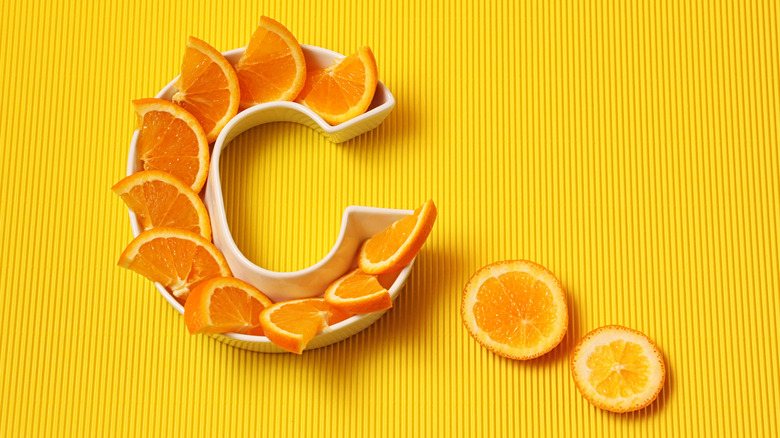What Your Food Cravings Are Trying To Tell You
Food cravings are so common that the average American spends more than 240 hours a year thinking about them, according to a survey of 2,000 men and women (via New York Post). That breaks down to about 40 minutes per day spent pondering nothing other than what we're going to eat or what our stomachs are craving, the study revealed. Oh, and watch out for 2:41 p.m. —that's the time of day the study says cravings are most likely to strike the average individual.
But why do cravings vary so much from person to person? Why do some people want chocolatey desserts while others have a hankering for pizza or french fries? And why do cravings hit us all so differently? Here's a quick breakdown to help you navigate some of the most common cravings, plus what experts think your body is trying to tell you when these food cravings strike.
Craving hamburgers or steak could be the sign of a nutritional deficiency
Despite all the supplements people in America take and all the many high protein diets we follow, deficiencies for iron, zinc, and protein are still incredibly common in the U.S. — especially for older people or women who have their period. Perhaps that's why many people find themselves craving steaks and hamburgers.
"A food craving is a sign from the body that you're missing something — whether that be balanced, adequate nutrition, or a particular nutrient," Crystal Savoy, a registered dietitian with Real Life Women's Health, told Eating Well. Your body knows when there aren't nutrients coming in and that's what causes a craving. "When I think about my cheeseburger craving," she explained, "I feel pretty clear that my body was asking for iron and a quality source of protein."
Although there's not always a nutritional hook behind the cravings you experience, there's usually at least something behind the overpowering urge for a specific food. "So often, it comes down to a low energy intake overall or someone who skipped a meal or didn't eat enough at their last meal," said Savoy.
Can't stop thinking about chocolate? You might be sad or depressed
It's not just the rich, creamy texture and the perfect blend of sweet and bitter flavors that makes chocolate so desirable. Eating chocolate has also been scientifically shown to help make you feel more relaxed. The boost in mood comes from antioxidants called polyphenols which dark chocolate especially is packed with. In a study of healthy men and women, researchers at Swinburne University of Technology in Australia found that individuals who were given a daily dark chocolate drink filled with the same polyphenols found in dark chocolate reported feeling an increase sense of "calmness and contentedness" after a month compared to individuals who were given a polyphenol-free placebo.
"Anecdotally, chocolate is often linked to mood enhancement," study author Matthew Pase, a professor of aging, told ScienceAlert. "This clinical trial was perhaps one of the first to scientifically demonstrate the positive effects of cocoa polyphenols on mood."
Having the munchies for cheese might mean you aren't getting enough sun during the day
Turns out that cheese craving isn't an alarming sign you're evolving into a mouse. Rather, deep intense cravings for some cheddar could be a sign of a vitamin deficiency. In an interview with Shape magazine, Vandana Sheth, a nutritionist and spokesperson for the Academy of Nutrition and Dietetics, revealed that cravings for cheese can result from a lack of vitamin D.
A nutrient vital for helping to keep bones, teeth, and muscles healthy, vitamin D also aids in the proper regulation of calcium and phosphate levels in the body. Food cravings are "often thought to be associated with nutrient deficiencies," according to Sheth.
Although sunlight is one of the best sources of vitamin D, winter months make it hard to get adequate sun exposure. This is an especially good time to eat foods that are high in vitamin D. In addition to cheese, fatty kinds of fish (like tuna, mackerel, and salmon) as well as foods fortified with vitamin D (like milk) are all good sources.
Thinking about a mouth-watering bowl of chili could be a sign of a quasi-addiction
Don't worry. An "addiction" to spicy foods doesn't require a 12-step recovery program. Although spicy foods aren't addictive in a technical sense, it's still possible to crave to something called capsaicinoids. Chili, curry and other spicy foods are filled with these potent chemicals responsible for giving foods their spicy bite. Eating foods that contain them regularly can set up a craving in your brain. It all comes down to the basic biology of our bodies, reported the nonprofit Chile Pepper Institute at New Mexico State University.
When your brain detects something spicy on your tongue, it triggers obvious sensations of pain. Our brains counter those sensations by releasing a flood of mood-boosting endorphins and dopamine into our bodies. This creates a wave of pleasure — and as with anything that brings the body pleasure, you're likely to eventually crave more and more of it. The's the basis of addiction — even when it comes to something as simple as the humble jalapeño.
Your late-night trip to the freezer in search of ice cream could be triggered by digestive problems
Craving ice cream could be your body's way of telling you that you have some issues going on within your digestive system. In an interview with Cosmopolitan magazine, Joseph Colella, a physician, weight-loss expert, and author of The Appetite Solution, cautioned that jonesing for ice cream after a meal may not just be your sweet tooth talking. Instead, you may have heartburn or acid reflux.
Creamy dairy foods tend to be soothing, Dr. Colella revealed, so that may be why you end up wanting them after a meal. You might also be taking too many over-the-counter pain relievers, he cautioned. Non-steroidal anti-inflammatory drugs like naproxen and Motrin may seem harmless, but they can actually cause low-grade inflammation in the stomach. A craving for your favorite mint chocolate chip ice cream could be your body's way of revealing that irritation — and telling you it needs a bit of a break from those meds.
There are a number of reasons you may be craving pickles
Sweet, sour, spicy, dill, bread and butter — the options in the pickle aisle are seemingly infinite. The one thing all pickles have in common? They're packed with sodium. And when we say packed, we mean it. One large pickle can contain as much as 800 mg of sodium. Consider that the recommended intake of sodium is less than 2,300 mg and that means that one pickle can supply a whopping 35 percent of your salt intake for the entire day. Nevertheless, craving pickles can be a sign of something going on in your body.
Registered dietitian nutritionist Lee Cotton told PureWow, "Research indicates that craving salt could be a symptom of a health condition such as adrenal insufficiency or Bartter's syndrome. It also could be a sign of dehydration or PMS." And once you eat one pickle, you may find yourself craving another. And another. And another.
As Prevention highlighted, "Research shows that consuming salt triggers the release of dopamine, the neurotransmitter associated with the brain's pleasure center, making salty foods as addictive as nicotine and alcohol." While you do need some sodium each day to keep the balance of fluids in your body in check, too much sodium can wreak havoc on the body.
Your craving for peanut butter could be the result of a low-fat diet
Blame that hyper addictive quality of creamy, crunchy, or all-natural peanut butter on its perfect trifecta of flavors. "Humans have an innate predilection for salt, sweet and fat," Katherine Brooking, a registered nutritionist, told HuffPost. "Most peanut butter brands contain some or all of these." Plus, the creamy texture makes peanut butter one of the hardest foods to eat in moderation.
Peanut butter's easy chewability and low water content are also factors that contribute to its high craveability, added nutritionist Dawn Jackson Blatner. "Things that are creamy without much chewing needed aren't as filling as foods that have more chewing involved," she explained. That means you often end up consuming more of them before you feel full or satisfied.
Additionally, if you're on a low-fat diet and find yourself craving peanut butter on the regular, consider that you may not be getting enough healthy fats. This could cause you to crave peanut butter, according to Healthline, which is a good source of both the monounsaturated and polyunsaturated fats your body may be saying it needs. Adding more healthy fats to your diet should help the craving to go away.
A severe craving for ice could be the sign of a compulsive condition
Nothing's more refreshing than an icy cold drink on a hot day. However, your love of frosty drinks could also be the sign of a condition called pagophagia, a compulsive eating disorder "characterized by ingestion of ice, freezer frost or iced drinks," according to a 2014 report published in the Journal of Clinical and Diagnostic Research.
The report described the case of a woman in her 40s who developed the habit of eating approximately 25 to 30 ice cubes per day as well as freezer frost. In addition to being a symptom of obsessive compulsive disorder, pagophagia has been linked to iron deficiency anemia (which may also trigger a number of symptoms including fatigue, pale skin, chest pain, and poor appetite). Experts explained that chewing ice may help to boost alertness and lessen swelling of the tongue, two other common anemia symptoms. For people with the condition, iron supplements may help to eliminate this intense craving for ice.
Craving burnt toast? Blame your taste buds
Everybody loves a little char from the grill on their steak or veggies, but many people wouldn't go so far as to say they enjoy burnt foods. However, if you do find yourself craving burnt popcorn, toast, or other foods burnt to a crisp, you might be experiencing a heighted version of what's called the Maillard reaction.
Dr. Paul Breslin, a researcher at the Monell Center, an institute that researches taste and smell, explained to Epicurious why some people like burning their toast. "Maillards are what makes cooked food taste like cooked food," he revealed. "When you smell a Cinnabon in a shopping mall, the reason it smells so good isn't the cinnamon — it's the Maillards, the smell of the browning bun. Burning is part of that spectrum, part of the Maillard reaction." The longer a food is cooked, he continued, the more pronounced and complex that caramelized flavor — and the Maillards within the food — can become.
Considering everybody's taste buds respond to foods differently, there's simply a number of people who love and crave foods with an especially intense, bitter, Maillard-heavy flavor— even if other people don't totally get it.
This is why you have a craving for sweets
There are a couple reasons you could be craving sugar. For one, your blood sugar — or the amount of glucose in your bloodstream needed for energy — might just be low and the craving is your body's way of telling you to eat something sweet in order to boost it back up to its regular level. Additionally, this craving is also thought to be ancestral.
Feeling the urge to eat something sweet directly links us back to those who came before us, Amy Campbell, a registered dietitian and certified diabetes educator, explained in an article for Diabetes Self Management. Early man gravitated to ripe fruit as a source of energy. That preference became ingrained in our taste buds over time — so much so that babies are born with a preference for sugar. As such, a sugar craving may just mean that, well, you're human. It's something we all experience from time to time as a natural part of our physiology.
You may also find yourself craving sweets when you're feeling down because, as Campbell explained, "When we eat sugar, endorphins (those feel-good chemicals) are released, along with serotonin, another chemical that regulates happiness and mood."
Yearning for a hot bowl of soup? You might be feeling down or depressed
Pho, ramen, and other soups are crave-worthy for a host of reasons. There's the powerful combo of mood-boosting carbs in the noodles, the addictive quality of the sodium in the broth, and the soft, creamy texture of the meats and vegetables — but there's also a strong anthropological basis behind the craveability of soups.
Ken Albala, a food historian at the University of the Pacific in California, explained the phenomenon to BBC News: "As far back as the 12th Century, physicians were recommending chicken soup ... to combat a cold." The expert continued, saying, "In the 16th Century, the common wisdom was to give nourishing, restorative, light and easily digested food to the sick." And that carries right up to today, when everyone from your mother to a doctor might suggest a warm bowl of soup to help you feel better.
The takeaway: If you're in a negative head space or under the weather, you might find yourself craving a bowl of soup. "That is a connection we make on a subconscious level as we grow up, so when we want to feel comforted we look to what our mothers would have provided," Albala revealed.
There's a reason your mouth is watering for french fries after drinking alcohol
Intense cravings for fatty, salty foods often result from drinking, according to Men's Health. In one study conducted by Purdue University, researchers found that moderate consumption of alcohol enhances the taste of salt, fat, and sugar, making all three flavors even more delicious to your taste buds. Perhaps that also explains why, after surveying over 12,000 people about their alcohol consumption and diets, Spanish researchers found that excessive drinkers and binge drinkers were the least likely to consume the recommend amount of fruits and vegetables and more likely to skip breakfast in comparison to people who drank less or not at all.
Your craving for unhealthy foods while drinking can pose quite a challenge for those trying to maintain or lose weight. This doesn't mean you can't drink though. Men's Health suggested limiting your intake to two drinks.
Craving a nonfood item like dirt or clay? You may be experiencing pica
The National Eating Disorders Association describes pica as an eating disorder that involves eating items that are not typically thought of as food and that do not contain significant nutritional value. The most commonly consumed items include everything from hair and dirt to cigarette ashes and paint chips. The condition can affect children, adolescents, and adults and often occurs in conjunction with other mental health disorders, like autism or schizophrenia. However, pica can also develop in pregnant women.
According to a study on the symptoms and cause of pica in the Journal of the Academy of Nutrition and Dietetics, pregnant women who develop pica often have lower levels of iron in their blood, which can reduce the amount of oxygen reaching their cells. In these cases, pica may be the body's attempt at finding something it can consume which will help to fight and counteract that deficiency.
If you are struggling with an eating disorder, or know someone who is, help is available. Visit the National Eating Disorders Association (NEDA) website or contact NEDA's Live Helpline at 1-800-931-2237. You can also receive 24/7 Crisis Support via text (text NEDA to 741741).
Loneliness may be behind your craving for comfort foods
Comfort food for you may look different than comfort food for someone else. Nevertheless, all countries have their own unique "comfort foods" and most people have a particular dish that brings them comfort. That relaxing feeling you get from eating a favorite childhood food, however, often has nothing to do with what's actually in the food, according to a study published in the International Journal of Gastronomy and Food Science. Rather, the study's authors said that comfort foods are appealing to us — and often become foods we crave — because they bring about positive thoughts of our childhoods or other key moments in life that have a significant memory attached to them.
By eating the food and experiencing the smells and tastes of an earlier time, you're then able to reconnect to these treasured moments, boosting your mood and helping you to fight off feelings of loneliness and sadness you may be experiencing. Sounds like a reason to eat to us!
Craving fried chicken might mean your body needs more essential fatty acids
Imagine you have a friend who has been on a low-fat diet. Lately, he has been strongly craving fried chicken, especially with a side of French fries. If you suspect that his fried chicken cravings are more than just adjusting to a new diet, you might be right.
According to nutritionist Stephanie Kay, craving fried foods like chicken fingers could be your body alerting you that it needs more essential fatty acids. As the Mayo Clinic explains, our bodies process the dietary fat and carbs we consume. This results in fatty acids. But while the body can use the amino acids in food to make nonessential fatty acids, it is unable to create essential fatty acids (via Medical News Today). Thus, it's crucial to eat foods that are good sources of these particular fatty acids.
So, if dietary fat can help with low amounts of fatty acids, then shouldn't fried chicken be helpful? Well, as Kay points out, fried foods are often made with refined vegetable oils, which isn't the best choice if you want healthy fats. Instead, she recommends other foods like nuts, eggs, and avocadoes to help with essential fatty acid levels. However, you should always check with a medical professional before making changes to your diet. You might want to keep a food journal, so they can see if you're eating enough foods that are good sources of essential fatty acids.
Sugar is only one reason why you might be craving soda
Soda can be a guilty pleasure. We know traditional sugary sodas aren't the best thing to drink, but there's something about that beverage that keeps us coming back. But as it turns out, there's more to why we crave soda than its sweetness.
As Gary Wenk, director of neuroscience undergraduate programs at the Ohio State University, told CNN, it's a combination of three factors why soda is so craveable: how it's sweetened, if it contains caffeine, and its fizzy nature. Wenk explained that consuming sugar causes our brains to release a chemical called dopamine, which makes us feel good, but "the effect of the dopamine surge is gone almost as fast as it arrived, leaving your brain wanting more." What's more, caffeine can also enhance the feel-good effect of dopamine, adding to soda cravings. And if you think switching to artificially sweetened soda is the answer, think again. If something tastes sweet, our body expects sugar, and if we don't get sugar and that dopamine high from it, we're more likely to drink more soda to compensate.
In addition, the carbonation in soda adds to its craveable nature in two ways. First, carbonated soda has some acidity, which can up the feel-good effect of sugar. And second, soda's fizziness can take away a bit from the sweetness of sugars and artificial sweeteners, which increases the chances of drinking more soda.
Craving wine and brain chemistry can go hand in hand
Do you crave a glass of wine at dinner? Do you consider a bit of wine while watching TV the perfect end to your day? And do you find that before you swallow that first sip, you're already feeling happier? There might be more to that feel-good sensation than you realize.
There are wines on the market that have little to no alcohol, but we're going to focus on more traditional wines. According to Forbes, while alcohol can affect one's brain chemistry causing depressed feelings, it can also cause the brain to release larger amounts of dopamine, which, as the Cleveland Clinic explains, is a neurotransmitter that makes you feel good. But the more one drinks alcohol, the less they experience that dopamine high, which can lead to more drinking to try to recapture it.
What's more, research from Indiana University points to a possible connection between just tasting an alcoholic beverage and the brain releasing more dopamine. During the study, 49 men tasted both beer and Gatorade, and found that just tasting the beer (not digesting it) was enough to cause a noteworthy increase in dopamine. Granted, this study didn't test if wine had the same impact, but it does support the possibility that the sense of taste alone can be enough to impact dopamine levels. The bottom line is if someone craves wine, it could be they're craving the effect of dopamine.
Craving raw fish could be a sign of depression
Before we explore this next food craving, let's clear up a common misconception: While sushi can contain raw fish, it doesn't always (via Britannica). But if you've been craving the raw fish variety, then it might have to do with feelings of depression.
Sushi has become increasingly popular in the United States. Nowadays, you can even buy sushi burritos or "sushirritos," which are basically burritos made from sushi ingredients (per MasterClass). And yet, according to research from the Food Marketing Institute, seafood in general isn't a very popular dish in the U.S. One possible reason why sushi might stand out among other seafood dishes is because fish contain omega-3 fatty acids. And as the Pain Resource points out, research has supported that such fatty acids could be a factor when it comes to depression.
Okay, but if fish have these fatty acids, wouldn't cooked fish be just as much of a mood booster as raw fish? Not necessarily, although there is evidence that cooked fish can still be helpful for someone experiencing feelings of depression. However, cooking the fish can break down healthy fats and nutrients, making it potentially less effective at helping one's mood than raw fish. So if you suspect your sushi cravings are connected to mood and depressive feelings, you might want to explore the underlying causes of those feelings.
If you're pregnant and craving fruit, you might need vitamin C
If you're pregnant, then you should always work with a healthcare professional when creating or altering your diet. With that said, if you're craving fruit during your pregnancy, it could be a sign that your body needs a specific nutrient.
According to Hawai'i Pacific Health, it's not uncommon for someone whose expecting to crave fruit when their vitamin C levels are low. As the National Institutes of Health (NIH) Office of Dietary Supplements explains, vitamin C is very important for multiple functions in the body, from processing protein to helping wounds heal. One medium-sized orange can provide 70 milligrams of vitamin C, while ¾ cup of orange juice could contain up to 93 milligrams. Other fruits with notable amounts of vitamin C include kiwifruit, strawberries, grapefruit, and cantaloupe.
Although fruit can be a good way to consume more vitamin C, there are other options. For instance, broccoli contains vitamin C, but how you prepare it can make a difference. A half-cup of cooked broccoli can provide 51 milligrams of vitamin C, while a half-cup of raw broccoli only has 39 milligrams. Cabbage and cauliflower are also good vitamin C sources.

